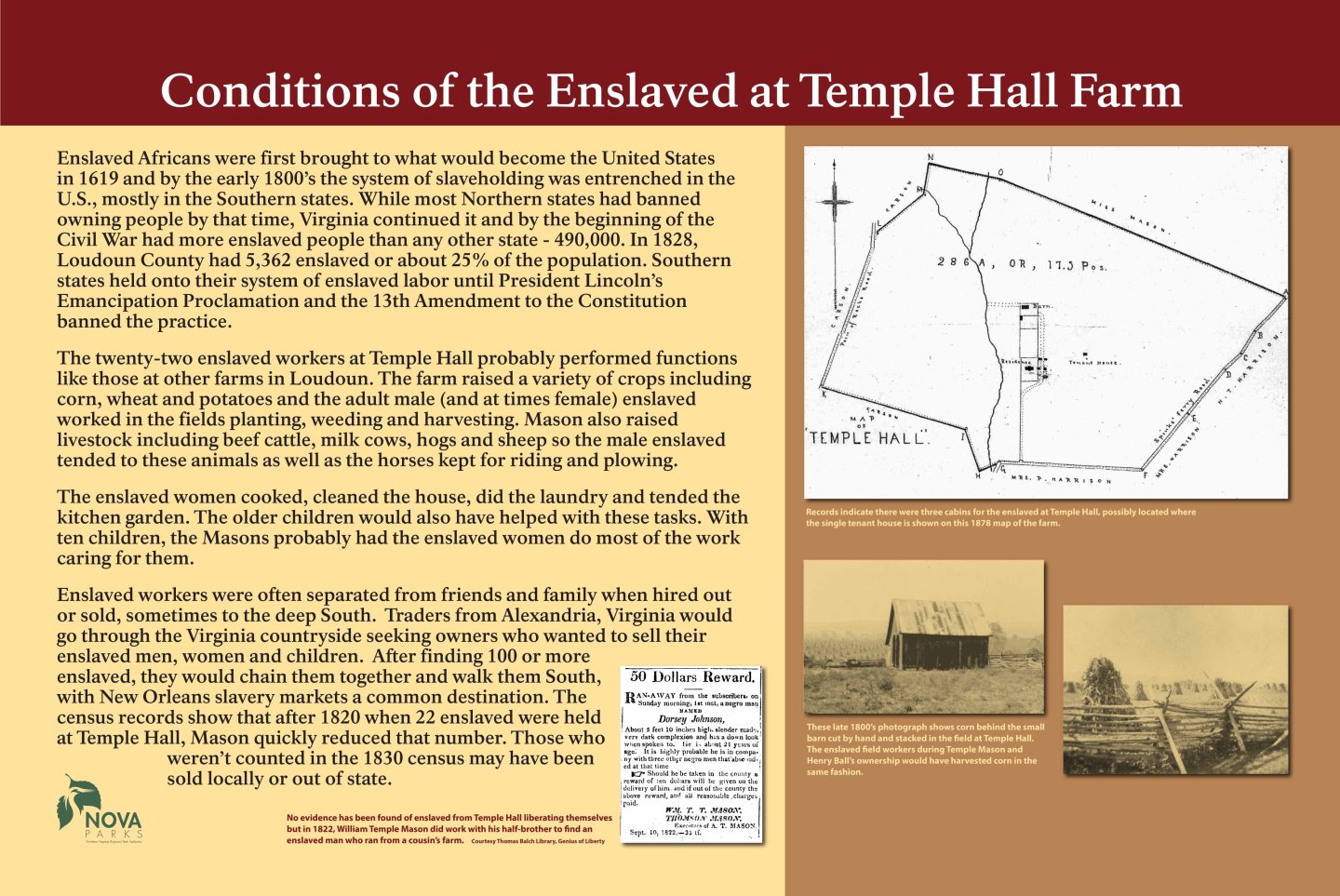Temple Hall Farm Regional Park
Park History Interpretive Series: Conditions of the Enslaved at Temple Hall Farm

The twenty-two enslaved workers at Temple Hall probably performed functions like those at other farms in Loudoun. The farm raised a variety of crops including corn, wheat and potatoes and the adult male (and at times female) enslaved worked in the fields planting, weeding and harvesting. Mason also raised livestock including beef cattle, milk cows, hogs and sheep so the male enslaved tended to these animals as well as the horses kept for riding and plowing.
Enslaved Africans were first brought to what would become the United States in 1619 and by the early 1800’s the system of slaveholding was entrenched in the U.S., mostly in the Southern states. While most Northern states had banned owning people by that time, Virginia continued it and by the beginning of the Civil War had more enslaved people than any other state - 490,000. In 1828, Loudoun County had 5,362 enslaved or about 25% of the population. Southern states held onto their system of enslaved labor until President Lincoln’s Emancipation Proclamation and the 13th Amendment to the Constitution banned the practice.
The twenty-two enslaved workers at Temple Hall probably performed functions like those at other farms in Loudoun. The farm raised a variety of crops including corn, wheat and potatoes and the adult male (and at times female) enslaved worked in the fields planting, weeding and harvesting. Mason also raised livestock including beef cattle, milk cows, hogs and sheep so the male enslaved tended to these animals as well as the horses kept for riding and plowing.
The enslaved women cooked, cleaned the house, did the laundry and tended the kitchen garden. The older children would also have helped with these tasks. With ten children, the Masons probably had the enslaved women do most of the work caring for them.
Enslaved workers were often separated from friends and family when hired out or sold, sometimes to the deep South. Traders from Alexandria, Virginia would go through the Virginia countryside seeking owners who wanted to sell their enslaved men, women and children. After finding 100 or more enslaved, they would chain them together and walk them South, with New Orleans slavery markets a common destination. The census records show that after 1820 when 22 enslaved were held at Temple Hall, Mason quickly reduced that number. Those who weren’t counted in the 1830 census may have been sold locally or out of state.


